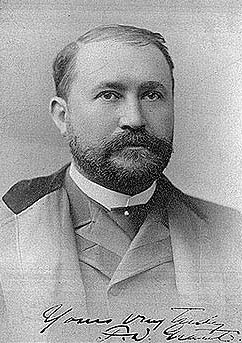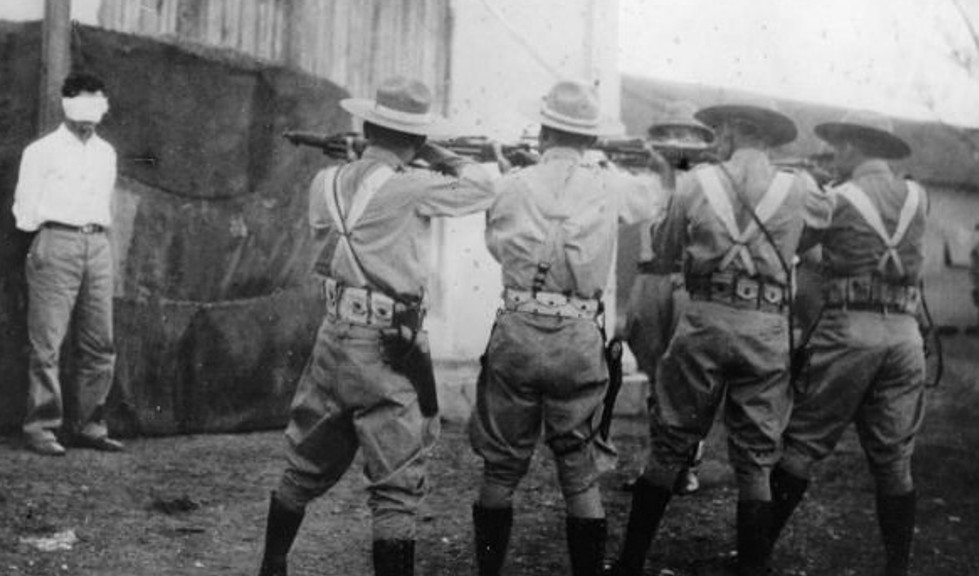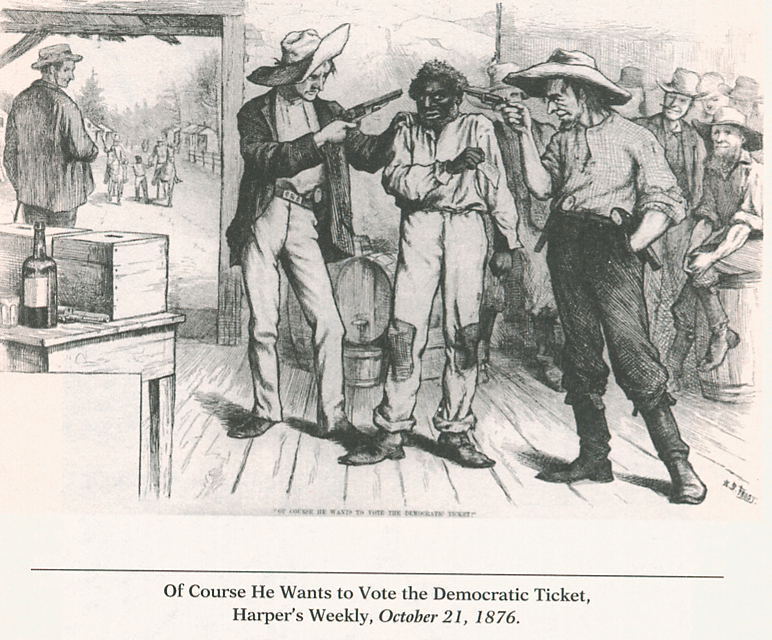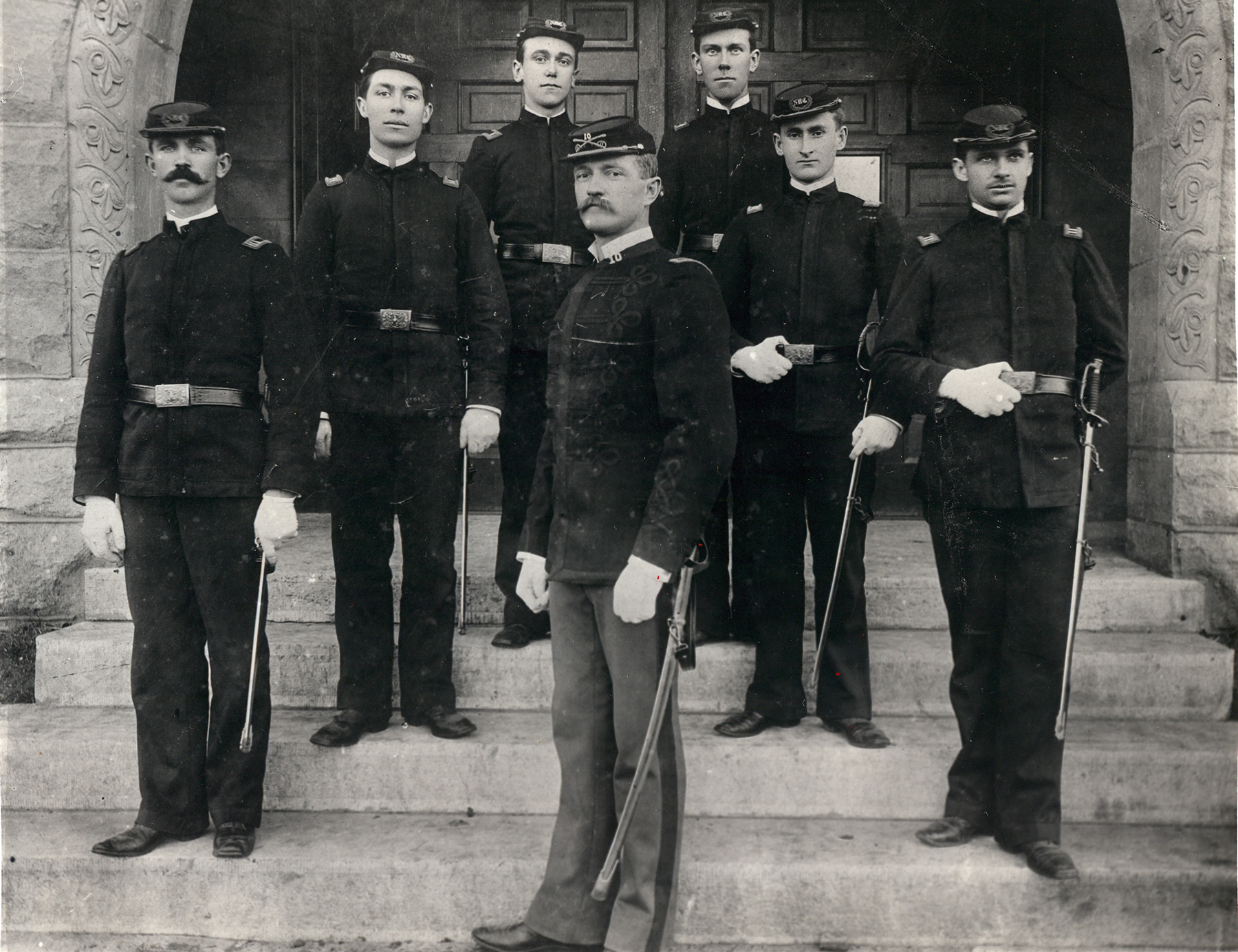"On October 2, 1890, Vice President Frederick Dent Grant, a young man with no political experience and little interest in the actual workings of the White House, was inaugurated President of the United States. Grant and Garfield rarely spoke; this wasn't due to any contempt or dislike; it was mostly due to Grant's uncaring attitude towards his own job. Grant knew he was only there for his name during election season and saw the Vice Presidency as a useless token at best. Garfield was the youngest president in some time; it's not like he'd be going anywhere. So Grant went hunting, drinking, or traveling instead.
In fact, he spent most of the Great Strike on a hunting trip with his brother. He had to be tracked down and asked to return to Washington, D.C., after the strike became a serious issue. Upon his return to the White House, Grant mostly stayed out of cabinet meetings. He felt as if he wasn't wanted there anyway; Hayes never spoke to him, and he practically ran the government anyway. What was the point?
Well, on October 1st, President Garfield asked Grant to come into his office. He spoke with him and then informed him that he would be resigning. The stress had gotten to him. Garfield spent five hours catching Grant up to speed. He then gave him a pat on the shoulder and resigned the following morning without saying a word. He hadn't even told the cabinet; when Hayes read it in the papers, he thought it was a joke. When he rushed into Garfield's office to find him, he realized he was gone. Halfway back to Ohio. At that moment, Hayes' heart sank into his stomach.
Grant spent the first week of his presidency being hounded by everyone in Congress. He had gone from being obsolete to being the most powerful man in the nation. Grant was personally non-political. He was a Republican but really didn't think much about politics. All these people who devoted their lives to politics, some even to gaining his job, were pretty overwhelming to the young man. He would often refuse to speak to any politicians, instead surrounding himself with family and friends. Hayes quickly lost his influential position in the cabinet. Grant disliked him pretty violently too. He felt that Hayes was a party boss and a stain on the democratic process. Whether he was right or wrong is mostly irreverent. What is relevant is who he turned to as his main cabinet advisor.
Grant knew Nelson Miles quite well; they had served together in the service. In fact, Grant had served under Miles back in the day. During Garfield's time in office, Miles was one of the only men to speak to Grant as a man and not some nepotism baby brute."
from
General Miles
by Justin Hsu, published in 1999
"The first major issue of the Grant presidency was how to handle the aftermath of the Great Strike. Garfield had ordered troops to stay in the Midwest until factories could reopen. This did end up happening, and in time, but many thought that their work wasn't over. Most in Congress, especially the liberals and straight Republicans, advocated for keeping the troops in the Midwest for at least a year. On top of that, they argued to extend the time they held some strikers in jail 'for security'. Secretary Miles most certainly agreed and began to pressure Grant.
Thus, on the 9th, Grant gave the order to extend the occupation of the Striker States indefinitely to assist in rebuilding and keeping order. Though he also promised he'd have the troops leave sometime in 1891, While seen as a stain on American history today, this move was widely applauded by most of the nation. Over the next few months, the feds would have near dictatorial control over the rust belt, working in tandem with the new state governments to crack down on any striking sympathies. In many ways, they were too successful at this.
It's disputed to what extent Grant knew about the methods of the occupation. It's not disputed as to what Miles knew, though. Regular executions, brutality, and unwarranted arrests were the order of the day. Union leaders like Debs and Gompers were practically exiled from the Midwest, terrified of another arrest. Grant did exactly what many wanted. He restored law and order. The cost, however, was human life, and more than a couple bent laws.
On the third of January, that came back to bite Grant. William Schultz was a striker from Chicago. He had stayed in the encampments while the military cleared them out, and he was brutally beaten and arrested. Schultz spoke little English and was personally German. His angry screams at the soldiers while he was beaten inspired a small skirmish. This led to the soldiers believing Schultz to be some sort of mastermind for the German workers. Over the next few months, Schultz was subjected to torture and was not among those pardoned by Garfield, being seen as too dangerous. While in prison, Schultz gained multiple fractured ribs, was malnourished, and was regularly waterboarded.
He said that he believed the hell would never end, but after the army realized that Schutz was no activist mastermind, he was promptly released and thrown back on the streets a week before Christmas in 1890. With little money, Schultz wandered the streets until being taken in by a family on Christmas Eve. This family happened to be hosting Eugene Debs, who had returned to Chicago to make a speech on Christmas morning. Upon hearing Schultz's story, Debs saw potential.
The following morning, Debs brought Schultz with him to his speech. He introduced the crowd to Schultz and told his story. Debs asked the laborers in the crowd to give anything possible to his legal fees. By the new year, Schultz had more than enough to sue and thus certainly did. Schultz v. US was the first of the Striker cases. Weeks later, nearly 25 lawsuits were filed, including one by Eugene Debs, against the government over the crackdown and subsequent occupation. In February, the Supreme Court agreed to take the cases in one package.
The Court would decide if strike-busting and martial law were constitutional.
Now it's important to note that a majority of the American public had little to no sympathy for the trial. In fact, they were in full support of Grant's actions and began to protest in favor of the federal government outside the Supreme Court. In a shock to no one, the working class greatly supported the strikers. They also planned protests in solidarity, but Grant expanded the occupation during the trial in an attempt to quell and discourage any violence.
In April, the Court announced that, in an 8-1 decision, they were nearly unanimously siding with the government. Chief Justice Stanley Matthews wrote the majority opinion. Arguing that since the Great Strike had turned violent, the strikers were acting as a rebellious force, and thus the Federal Government had every right to crush them and any following threat. The only dissent came from John Marshall Harlan, who argued that the federal reaction set a dangerous precedent for what can and cannot be done to strikers. This decision caused near-instant violence and protests in the Rust Belt. It was quickly put down, but the protests would lead to Grant announcing the occupation would continue until January 1st, 1892.
The other impact seen in the Striker decision was the second part of the majority opinion. 'the Federal Government had every right to crush them and any following threat.' Any
following threat. Almost immediately, the Freedmen's Party argued that that same line could be attributed to the failed reconstruction states and their new voter suppression and segregation laws.
Representative Booker T. Washington wrote a bill that would give the federal government the authority to enforce the 15th Amendment and ban any voter suppression methods being used in these failed reconstruction states. The 'Booker Bill' was similar to the 'Lodge Bill' written by now Attorney General Henry Cabot Lodge three years prior. In April, Attorney General Lodge met with Washington and offered his support for a mix of the two bills. After some negotiation, the Republicans and Freedmen threw their weight behind the bill.
But instead of an easy passage, the bill was soon stuck in committee. The Liberals were hesitant. Speaker Reed personally supported the bill but wanted to wait until after the 1892 election. He told Washington that he couldn't guarantee enough liberal votes to pass the Democratic resistance. This was mostly due to the fact that the Democrats promised to filibuster the bill. Washington then tried to make a deal with James B. Weaver and the populists, hoping to enlist their help in breaking a potential filibuster. Again, Weaver supported the idea but was unwilling to give vocal support, fearing a populist split. At a dead end, Washington didn't know what to do. Upon telling Lodge about this, a new plan was formed. It was three-pronged.
First, Lodge would enlist the support of Grant and the RNC; they would ensure that the 'Booker Bill' was a major campaign piece in the upcoming election. Second, a large-scale media campaign would be launched in the north and west, building popular support. And finally, the Department of Equity would challenge these segregation laws in court and try to get them to the mostly Republican Supreme Court by 1892. If successful, the 'Booker Bill' would be ready for passage by 1893! They would just
have to win in 1892."
from The Second Grant
by Hannah Juliet, published in 2005
"Indian affairs were disturbing during the Grant Presidency. It had been a dream of the RNC since the Sheridan days to clear out the Great Plains. This hope was largely dashed by a lack of Congressional support. When Garfield came into office, he hoped for reconciliation and pushed no further on any Indian conflict. Grant had different plans, however. Upon taking office, he knew that a landslide loss was coming in the midterms. That said, if he could pass any Congressional blank check before the next Congress was inaugurated, he'd be set. So, Grant, the RNC, and the populists of all people worked together to get a free reign bill passed.
That's right, the populists. Many of them were from the plains and supported removing the natives. They were actually quite glad to vote in full support of the bill. They also gained the support of the Freedmen representatives, who made impassioned speeches against native attacks! Even in the civilized lands of Sequoya. The Indian representatives walked out, refusing to face the mistreatment. On December 18th, the "Indian Relocation Bill" was passed. Giving the president the power to move Indian reservations at will. Instead of doing this immediately, Grant decided to wait until new states could be admitted to the Plains. We are hoping to use the state governments as assistance for the removal.
A year and a half later, on July 4, 1892, the plains states entered the union. On July 5th, Grant ordered all native tribes on reservations above the 40th parallel to move into New Mexico or Arizona Territory by January 1st, 1893. Grant hoped to center all natives in the Southwest, closer to Sequoya, making that area of the nation an evolved "Indian Territory." Obviously, many tribes didn't take this very well."
from The Second Trail of Tears
by Angie Kingsley, published 1982
On the foreign front, one of the major developments were seen during the Grant Presidency. First, Haiti exploded into civil war on June 10th. After multiple decades of disaster, the nation finally broke at the seams. A group of staunchly anti-American military officers charged the executive mansion in Port-Au-Prince after an election saw the selection of a pro-American president, one Monpoint Jackson. The violence quickly led to calls for help from American businesses in Haiti and the State of Dominica.
Though the issue was slept on for a few days, it couldn't be resolved after the 16th, when six Americans were killed by the Haitian Army in Port-au-Prince. All six worked for the American Sugar Company. A day later, the Haitian Army apologized for the incident and offered to accept any offer for peace from the US. Grant never responded.
On June 23rd, under the advice of Secretary Miles, Grant went before Congress to ask for a declaration of war against Haiti for the threat to American business and sovereignty. The House, in a 311-28 vote, agreed with the President.
The Haitian-American War had begun.
General William Shafter was sent to Dominica with 5000 men with orders to restore order to Haiti and occupy the nation. General Shafter carried out his orders with diligence. Upon crossing the border into Haiti on July 6th, he quickly mopped up insurgents who had been attacking small Dominican farms over the past month. After a series of skirmishes on his way to Port-au-Prince, many in the Haitian military surrendered. The pro-American President and his forces quickly joined forces with Shafter, and he was practically given a military parade upon arriving at the Capitol. It had been liberated by President Jackson and a small American fleet sent from Florida a week prior. By July 29th, the war was over.
In the treaty, President Jackson would reassume control over the nation, General Shafter and the Army would remain in the nation to assist in 'Keeping Order' and American business would be given special privileges in the nation. In other words, Haiti was now an American puppet and one being queued up for annexation."
from The Haitian American War
by Henrietta Lee, published 1977
-
A FULL TIMELINE OF THE HAITIAN-AMERICAN WAR TO COME TOMORROW!
Also the 1892 Vignettes to come out tomorrow with the Conventions for 1892 soon to follow.







